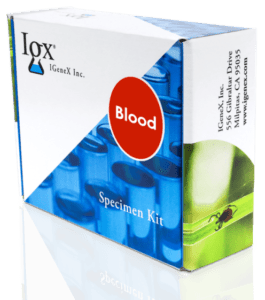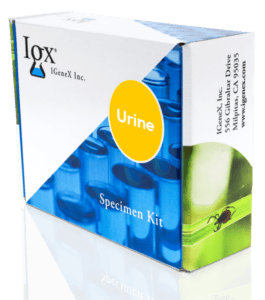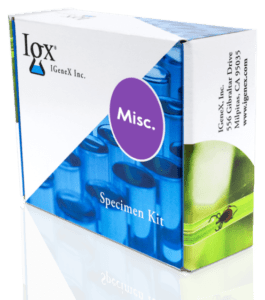• Indirect testing, and therefore useful when the pathogens are hiding, but eliciting an immune response.
• Active infection may be indicated when either IgM only, IgM and IgG, or IgG (≥ 160) antibodies are present.
Test
B. microti IgM & IgG IFA
$160.00
The Babesia Immunofluorescence Assay (IFA) is designed to detect human IgM and IgG antibodies to Babesia antigens in human serum. Titers rise during the first two-to-four weeks of illness and then decline over the next six-to-12 months. In patients with previously high titers, an IgG titer of less than 160 may indicate a resolving infection. If the IFA is negative but clinical symptoms are present, PCR and/or FISH testing are suggested.
Babesia is carried by the same species of ticks that cause Ehrlichiosis, Bartonellosis, and Lyme disease. Therefore, patients with positive titers should also be tested for other tick-borne diseases.
Tube / Specimen Requirements
1 SST/ minimum volume 0.5mL serum
CPT Code(s)
86753 x2
Sample Report
View
IFA
Available in New YorkYes
IgM
< 20 Negative
20 May or may not indicate active infection.
≥ 40 Indicates active infection.
IgG
< 40 Negative
≥ 40 to < 160 May or may not suggest active infection. In patients with previously high titers, such titers may indicate resolving infection.
≥ 160 Indicates active infection.
- A single negative IFA test result does not exclude the possibility of Babesia
- Other Babesia antibodies may cross-react and yield a false positive Babesia IFA test.
- Results should be interpreted in conjunction with other laboratory and clinical findings.
Related Tests
GET STARTED TODAY!
The first step in getting tested with IGeneX is to order a collection kit. Choose between a Blood, Urine, or Miscellaneous kit.
WHY IGENEX FOR TICK-BORNE DISEASE TESTING?

- CLIA certified in all 50 states
- Long track record of success since 1991
- Offers testing that is nearly twice as accurate as CDC recommended tests
- Tests for all major tick-borne illnesses, including Lyme disease, TBRF, Babesia, Bartonella, and Rickettsia
- Utilizes comprehensive testing methods such as PCR, ImmunoBlots, IgXSpot and FISH
- Has become a nationwide leader in COVID-19 testing due to a relentless focus on customer satisfaction








